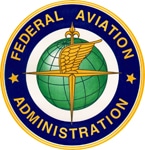

The agency, in a notice of proposed rulemaking, is responding to a mandate in the Airline Safety and Federal Aviation Administration Extension Act of 2010.
The FAA, subject to public comment and publication of a final rule, proposes that first officers – also known as copilots – hold an Airline Transport Pilot (ATP) certificate, requiring 1,500 hours of pilot flight time. Currently, first officers are required to have only a commercial pilot certificate, which requires 250 hours of flight time.
The proposed rule also would require first officers to have an aircraft-type rating, which involves additional training and testing specific to the airplanes they fly.
Other highlights of the proposed rule include:
* A requirement that pilots have a minimum of 1,000 flight hours as a pilot in air carrier operations that require an ATP prior to serving as a captain for a U.S. airline.
* Enhanced training requirements for an ATP certificate, including 50 hours of multi-engine flight experience and completion of a new FAA-approved training program.
* An allowance for pilots with fewer than 1,500 hours of flight time, but who have an aviation degree or military pilot experience, to obtain a “restricted privileges” ATP certificate. These pilots could serve only as a first officer, not as a captain. Former military pilots with 750 hours of flight time could apply for an ATP certificate with restricted privileges. Graduates of a four-year baccalaureate aviation degree could to obtain an ATP with 1,000 hours of flight time only if they also obtained a commercial pilot certificate and instrument rating from a pilot school affiliated with the university or college.
To read the notice of proposed rulemaking, click on the following link:
http://archives.gov/federal-register/public-inspection/
The public may comment on the proposal for 60 days after publication Feb. 29 in the Federal Register.
Related News
- SMART-TD Calls on U.S. Senate to Support the Cantwell Amendment and Protect Rail Workers
- Yardmaster Protection Act Introduced
- PHOTO GALLERY: 2025 Denver Regional Training Seminar
- Fighting for Stronger Heat Protections for Rail Workers
- Regional Training Seminar Sets (Mile-High) Record in Denver
- Registration Open for Anaheim Regional Training Seminar
- Help Promote Rail Crossing Safety on ENS Sign Awareness Day
- Streak of Organizing Wins, Strong Agreements Highlights the SMART-TD Difference
- Sisters Represent TD at Charity Mud Race
- New College Education Benefit Available for SMART-TD Members and Their Families